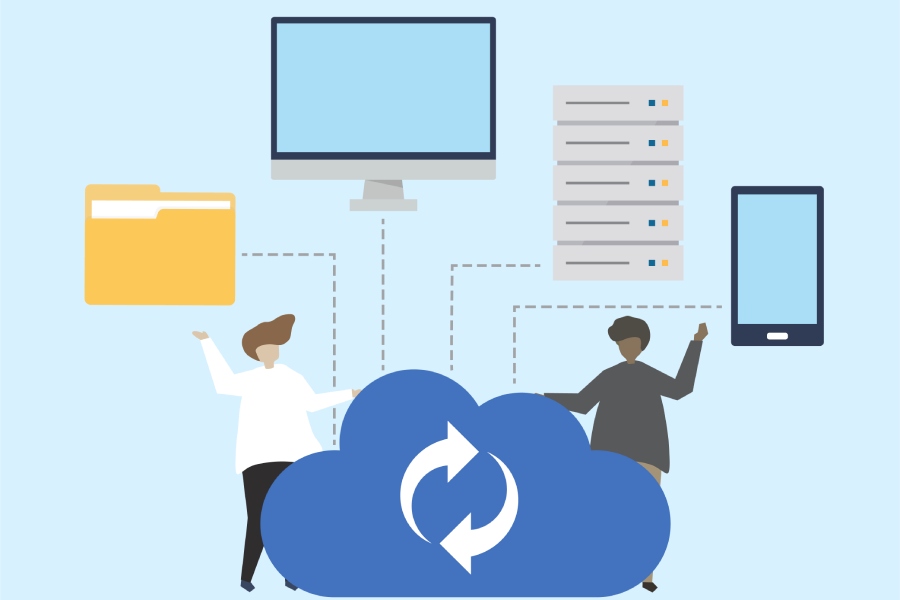In 2020, the managed service offerings market was forecast to cross $200 billion in size. According to recent surveys, the market is set to cross $365 billion by 2025. Organizations worldwide are making the shift to outsourcing IT services. Most of these organizations are looking towards managed service offerings that help them focus on their core businesses and reduce their IT infrastructure costs.
The managed service offerings market is also stepping up and evolving to meet the preferences of the customers. However, to keep up with the challenging needs of time by maintaining customer relations and business continuity, MSPs must enhance their strategies for service delivery. If the service delivery goes wrong, they could be driving their customers to their competitors.
How can various types of managed service providers stay away from extending substandard service? How can managed service offerings be profitable dealing with organizations of any size, industry, or geography? What different strategies can MSPs leverage to retain their customers and ensure an exceptional service experience?
By following the strategies given below, MSPs can effectively boost profitability through types of managed services and maintain strong customer relations through effective service delivery.
Strategies
Don’t Let Fixed Costs Hinder Customer Acquisition
Fixed costs are one of the major hindrances to customer acquisition when it comes to MSPs. They also hinder product innovation because MSPs tend to stop experimenting with their products once the price and terms are set too rigidly. A flexible model allows for flexible service delivery costs as well. The two factors that MSPs should constantly revisit are how and how much they charge. This perspective will enable MSPs to serve clients efficiently on both the business and the technology levels to stay true to the managed services meaning. When customers get what they want, they will most likely continue business with the provider rather than look for a competitor that charges less.
Deploy Service Delivery Managers For Success
It is a false notion among the managed service offerings market that service delivery is entirely dependent on the support engineers. There are many managed services examples where the service delivery managers are more than responsible for navigating operations and extending a practical service delivery experience. Service delivery managers clarify the requirements and establish their capabilities by explaining different types of managed services and convincing the customer through various marketing channels, including managed services offerings PPT. They also provide realistic expectations about the project’s scope and quality. They will then allocate the right amount of resources to satisfy the needs of the client. Almost all service managers stay on-site to identify and mitigate risks as they report the project’s status. Proactive service delivery managers will be capable of presenting the project as one of the best-managed service provider examples by resolving issues timely.
Leverage Location-Specific Market Data To Win Customers
Bidding without studying the market rates of the region and other location-specific information can be disastrous. If the sales team does not scout the area for its prevailing rates, it might find itself bidding too high, looking for profit. Alternatively, it might also end up bidding way lower to win a project, spending more on their resources without realizing any profit. Some sales teams capture internal data for reference. Still, it may not correctly reflect the market rates offered according to various types of managed services due to changing times and other dynamic factors.
Provide Additional Channel Options
One of the reasons customers are looking for new MSPs is the lack of appropriate and convenient communication channels. With the evolving landscape of tech-dependent markets, organizations looking to expand may find the communication channels provided in their managed service offerings to be inadequate to meet their demands. For example, 57% of SMBs want their MSPs to provide them video interaction capability for customer support. The inability of MSPs to deliver such services sends businesses looking for alternative options. Therefore, MSPs should be aware of the requirements of their customers and fulfill them to retain customers and build relations.
Embrace Innovation
Operating with conventional tools in the dynamic realm of technology can be suicidal for any organization. Intelligent MSPs realize this fact and are always on the hunt for new ways to solve existing problems. They look for solutions with the help of emerging technologies such as Artificial Intelligence (AI) and Machine Learning (ML) and reduce downtime drastically while satisfying their customers. An MSP should fix problems, but it should also anticipate future issues that they or their customers may face. Rather than following the old break/fix model, MSPs should foresee possible problems and work proactively to avoid them altogether. By investing in modern technologies, MSPs can become co-innovators by helping businesses create value, boost productivity, and pioneer innovation.
Evolve To MSSP
A recent report revealed that 70% of MSPs have cybersecurity offers for their customers, but only 56% can test the resilience of such packages.
Furthermore, the remote working culture has completely changed the geography of managed service offerings and the managed services definition. In the non-remote working environment, businesses were protected by a corporate firewall, but attack vectors have increased since the pandemic. With the changing digital landscape, cybersecurity is now dependent on endpoint security.
MSPs offer endpoint protection, but only when the customer signs a specific contract for it. To garner more business and retain the customers, MSPs must evolve to include endpoint protection as a part of the standard package, transforming an MSP into an MSSP (Managed Security Service Provider). Most MSSPs adopt the NIST framework as they build the framework by collaborating with corporates and the government. An MSSP will offer endpoint protection, patch management, vulnerability scanning, hosted email security services, DNS firewall, managed detection and response, and security awareness training. An MSSP will guide the customer through the security risks to build a robust security strategy for the organization. Furthermore, it will add the quintessential component of cybersecurity to its existing offer to provide a complete solution to SMBs and large organizations alike.
Final Words
Due to the dynamic business transformations witnessed in recent times, customers will have new and challenging requirements that MSPs and eventual MSSPs will have to solve. MSPs that solve such issues and support the needs will be valuable assets for businesses as they help them make the transition through various market shifts. MSP partners will have to offer adequate communication channels, modern technological solutions, and flexible price models. They must also be proactive in their service, sensing the issues customers face and providing strategic managed service offerings to boost productivity and make business operations smooth. All such factors will help MSP to increase its profitability and retain customers in the long run.


